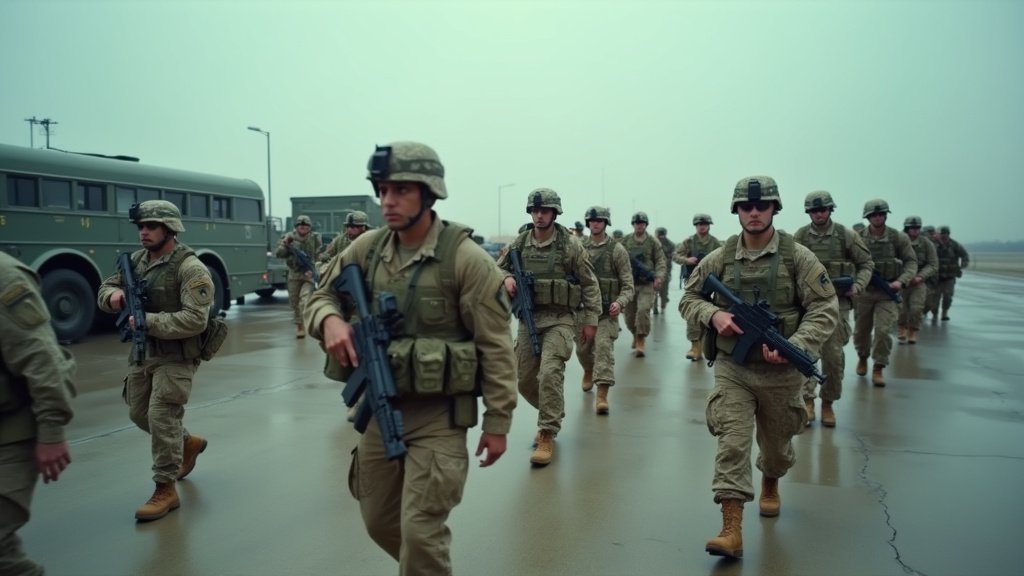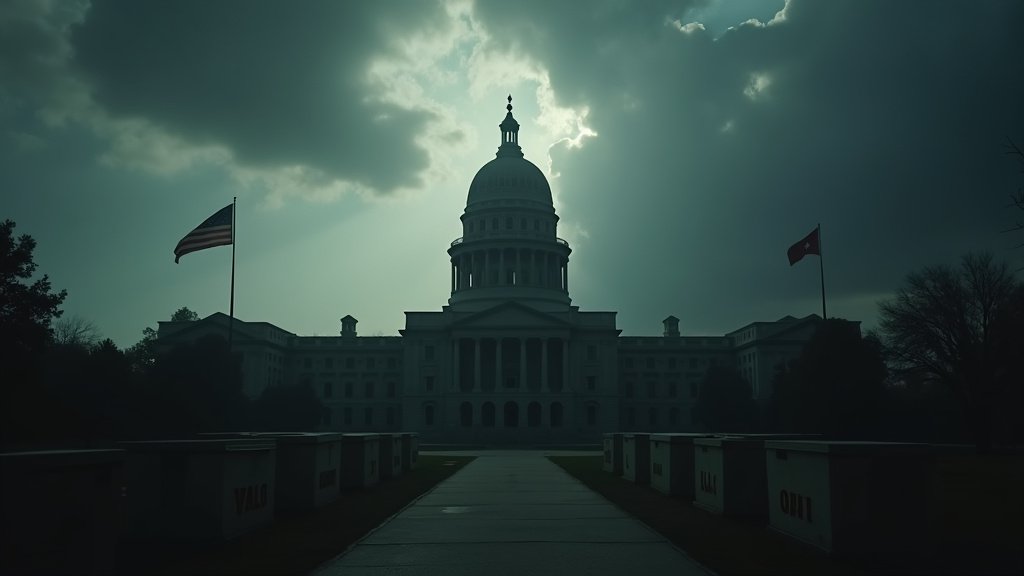ELWOOD, Ill. – Approximately 200 members of the Texas National Guard have arrived in Illinois, marking a significant escalation in President Donald Trump’s directive to deploy federal forces to American cities. The troops landed at a U.S. Army Reserve center in Elwood, located southwest of Chicago, on Tuesday, October 7, 2025. This current deployment comes despite vigorous opposition from Illinois state officials and local leaders in Chicago, who have filed lawsuits and publicly condemned the action as unlawful and politically motivated.
Deployment Details and Stated Mission
The Texas National Guard contingent was dispatched on orders from President Trump, with the stated mission to protect federal functions, personnel, and property. Specifically, the Pentagon indicated the troops would assist in safeguarding U.S. Immigration and Customs Enforcement (ICE) facilities in Broadview and downtown Chicago, areas that have seen ongoing protests related to federal immigration enforcement operations. The deployment is slated for an initial period of 60 days, with the possibility of extensions. Governor Greg Abbott of Texas, a Republican, authorized the deployment, stating he “fully authorized the president to call up 400 members of the Texas National Guard to ensure safety for federal officials”.
Fierce Opposition from Illinois Officials
The arrival of troops from another state has ignited a political firestorm. Illinois Governor JB Pritzker, a Democrat, has been a vocal critic, accusing President Trump of using troops as “political props” and “pawns”. Governor Pritzker declared the move an “invasion” and asserted that such forces were unnecessary and potentially inflammatory, arguing that federal involvement was escalating tensions rather than resolving them.
Chicago Mayor Brandon Johnson echoed these sentiments, labeling the deployment “unconstitutional, it’s illegal and it’s dangerous”. Mayor Johnson criticized the federal administration for a lack of cooperation with city authorities and stated that the strategy was an “unconstitutional overreach”.
Legal Challenges Mount Against Federal Action
In response to the impending deployment, Illinois Attorney General Kwame Raoul, on behalf of the state and the city of Chicago, filed a lawsuit seeking to block the federalization and deployment of both the Texas and Illinois National Guard troops. The lawsuit argues that the Trump administration exceeded its authority under federal law, including the Posse Comitatus Act, which generally prohibits the use of the military for domestic law enforcement.
Plaintiffs contend that the legal prerequisites for federalizing the National Guard – such as invasion, rebellion, or the inability of the federal government to enforce its own laws – were not met in Illinois. The state asserts that the deployment infringes upon Illinois’s sovereignty and right to self-governance, potentially causing “additional unrest,” “mistrust of police,” and economic harm.
A federal judge, April Perry, declined to issue an immediate temporary restraining order on Monday, October 6, 2025, but scheduled a full hearing for Thursday, October 9, 2025, for arguments on the lawsuit. The judge cautioned the federal government to “take a pause” while the case proceeds. A similar attempt by the Trump administration to deploy National Guard troops to Portland, Oregon, had previously been blocked by a federal judge.
Broader Context: A Federal Strategy Under Scrutiny
This deployment to Illinois is part of a larger pattern by the Trump administration to assert federal authority in Democratic-led cities, which the president has often characterized as “war zones” plagued by crime and lawlessness. The administration has justified these actions as necessary to restore order and protect federal assets amid protests, particularly those related to immigration enforcement. However, critics argue that Trump has used these situations to manufacture a pretext for federal intervention, testing the limits of presidential power and creating conflict between federal and state governments.
The presence of Texas National Guard troops in Illinois, over the strenuous objections of its state leadership, highlights the deepening political divide and legal complexities surrounding federal troop deployments on U.S. soil. As the court proceedings continue, the troops remain stationed in Elwood, awaiting further directives and facing scrutiny from both state officials and the public.
This news has generated considerable buzz in political circles, with questions remaining about the precise scope of the Texas Guard’s mission and the potential for further legal or political repercussions. The situation underscores a tense moment in federal-state relations as the administration pushes its assertive law-and-order agenda.






